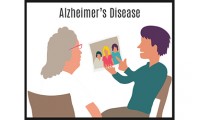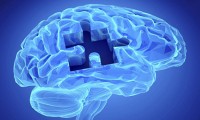-
Breakthrough Device Designation Granted to Digital Intervention for Alzheimer’s
- Source: MobiHealthNews
- 1,475
- August 27, 2018
-
Experimental Drug to Treat Alzheimer Disease
- Source: NBCNews
- 737
- August 1, 2018
-
Monoclonal Antibody Delays Cognitive Decline, Erases Alzheimer’s Plaques in Phase 2 Trial
- Source: MDEdge
- 1,066
- July 30, 2018
-
Fatty Diet and Liver Function Impact Risk of Alzheimers
- Source: ScienceDaily
- 734
- July 29, 2018
-
Rise in Shares for Biogen, Eisai as Alzheimer’s Drug Succeeds in Mid-Stage Trial.
- Source: Reuters
- 745
- July 9, 2018
-
Target Identification for Drug Development Against Alzheimer Disease
- Source: medicalxpress
- 615
- June 8, 2018
-
EIP Pharma bags $20.5M to support Alzheimer’s drug through phase 2
- Source: Ddu
- 613
- May 18, 2018
-
Epigenetic Dysregulation May Be Key to Onset
- Source: Pixabay
- 620
- March 9, 2018
-
Body clock disruptions occur years before memory loss in Alzheimer’s
- Source: medicalxpress
- 652
- February 1, 2018
-
Alzheimer’s Drug Turns Back Clock in Powerhouse of Cell
- Source: Neuroscience News
- 631
- January 12, 2018
your submission has already been received.
OK
Subscribe
Please enter a valid Email address!
Submit
The most relevant industry news & insight will be sent to you every two weeks.











